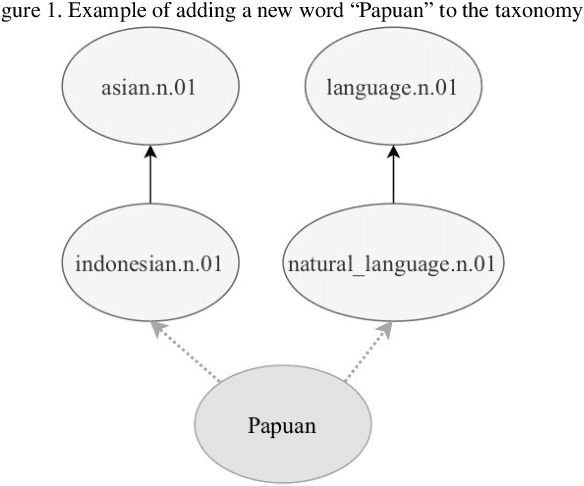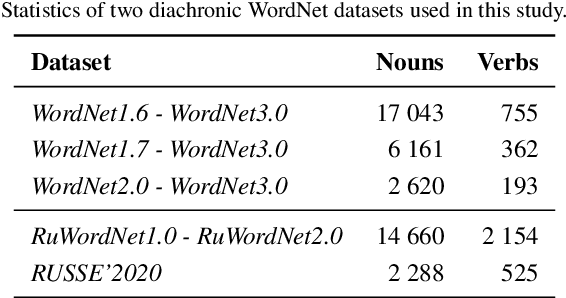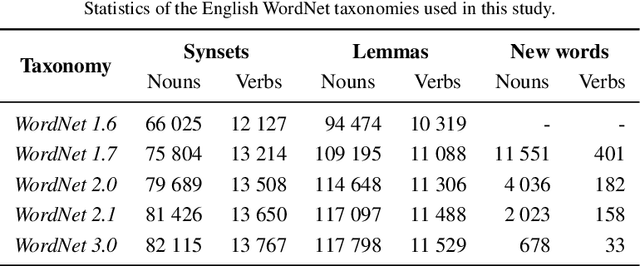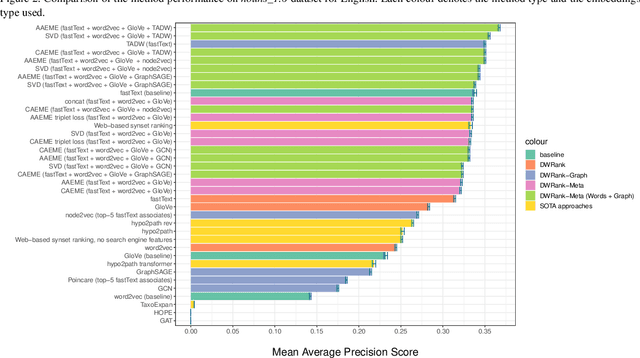Taxonomy Enrichment with Text and Graph Vector Representations
Paper and Code
Jan 21, 2022



Knowledge graphs such as DBpedia, Freebase or Wikidata always contain a taxonomic backbone that allows the arrangement and structuring of various concepts in accordance with the hypo-hypernym ("class-subclass") relationship. With the rapid growth of lexical resources for specific domains, the problem of automatic extension of the existing knowledge bases with new words is becoming more and more widespread. In this paper, we address the problem of taxonomy enrichment which aims at adding new words to the existing taxonomy. We present a new method that allows achieving high results on this task with little effort. It uses the resources which exist for the majority of languages, making the method universal. We extend our method by incorporating deep representations of graph structures like node2vec, Poincar\'e embeddings, GCN etc. that have recently demonstrated promising results on various NLP tasks. Furthermore, combining these representations with word embeddings allows us to beat the state of the art. We conduct a comprehensive study of the existing approaches to taxonomy enrichment based on word and graph vector representations and their fusion approaches. We also explore the ways of using deep learning architectures to extend the taxonomic backbones of knowledge graphs. We create a number of datasets for taxonomy extension for English and Russian. We achieve state-of-the-art results across different datasets and provide an in-depth error analysis of mistakes.
 Add to Chrome
Add to Chrome Add to Firefox
Add to Firefox Add to Edge
Add to Edge